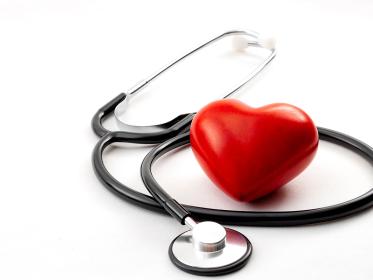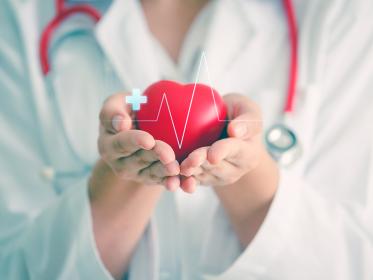What is a Heart Attack?
A heart attack occurs when a blood clot blocks one of the heart’s blood vessels and the heart muscle can’t get the oxygen it needs to function. Part of the heart muscle may die or be damaged; sometimes the heart fails, causing death. A heart attack can be sudden, painful and easy to identify or be so subtle that you do not know you have had one.
Women are less likely than men to seek help when they’re having a heart attack, because they may mistake the symptoms for indigestion or another ailment. For this reason, many women die from heart attacks. Getting to the hospital fast allows use of clot-busting drugs that can stop or reduce a heart attack. For these to work, you must receive them within six hours after your symptoms start.
Heart Attack Symptoms
Call 911 if you experience any or all of these heart attack symptoms:
- Chest pain. Most heart attacks involve discomfort in the center of the chest that lasts more than a few minutes or that goes away and comes back. It can feel like uncomfortable pressure, squeezing, tightness or pain.
- Discomfort in other areas of the upper body. Symptoms can include pain or discomfort in one or both arms, the back, neck, jaw or stomach.
- Shortness of breath. This feeling often comes along with chest discomfort, but it can occur before the chest discomfort starts.
- Other signs: Anxiety, cough, fainting, breaking out in a cold sweat, nausea, light-headedness, or dizziness
- Less common signs may include seizures, fatigue, difficulty breathing when lying down or low blood pressure.
Heart Attack Treatment
Treatment may include intensive care. Continuous ECG monitoring is started immediately, because life-threatening arrhythmias are the leading cause of death in the first few hours of a heart attack. Surgery such as angioplasty or the placement of a stent may be necessary.
Your doctor will prescribe medications for you, which may even include aspirin.
After a heart attack, follow-up care is important to reduce the risk of having a second heart attack. Often, a cardiovascular and pulmonary rehabilitation program will be available. You should follow your doctor’s instructions for exercise, medications and diet very carefully.
Heart Attack Prevention
Your best heart attack prevention is eating healthy, exercising often, avoiding smoking, and controlling cholesterol and blood pressure. Controlling diabetes and losing weight will help prevent a heart attack.
Knowing your increased risks will help you prevent further complications.
Risk Factors for Heart Disease
These increase the chance you’ll suffer a heart attack:
- Increasing Age
- Male
- Family History
- Smoking
- High blood pressure
- Diabetes
- Lack of Regular Exercise
- Overweight
- Unhealthy cholesterol levels, especially high LDL (“bad”) cholesterol and low HDL (“good”) cholesterol
- Chronic kidney disease
A heart attack is a medical emergency. If you have symptoms of a heart attack, seek immediate medical help. Call 911 or your local emergency number immediately. Do not try to drive yourself to the hospital. Do not delay, because you are at greatest risk of death in the early hours of a heart at
Heart Attack Screening
The health care provider will perform a physical exam and listen to your chest using a stethoscope. The doctor may hear abnormal sounds in your lungs (called crackles), a heart murmur, or other abnormal sounds. You may have a rapid pulse. Your blood pressure may be normal, high, or low.
The tests the health care provider may do to look at your heart include:
- Coronary angiography
- CT scan
- Echocardiography
- Electrocardiogram (ECG) — once or repeated over several hours
- MRI
- Nuclear ventriculography
Blood tests can help show if you have heart tissue damage or a high risk for heart attack. These include:
- Troponin I and troponin T
- CPK and CPK-MB
- Serum myoglobin
To schedule a screening or make an appointment with a doctor, call 865-305-6970.

